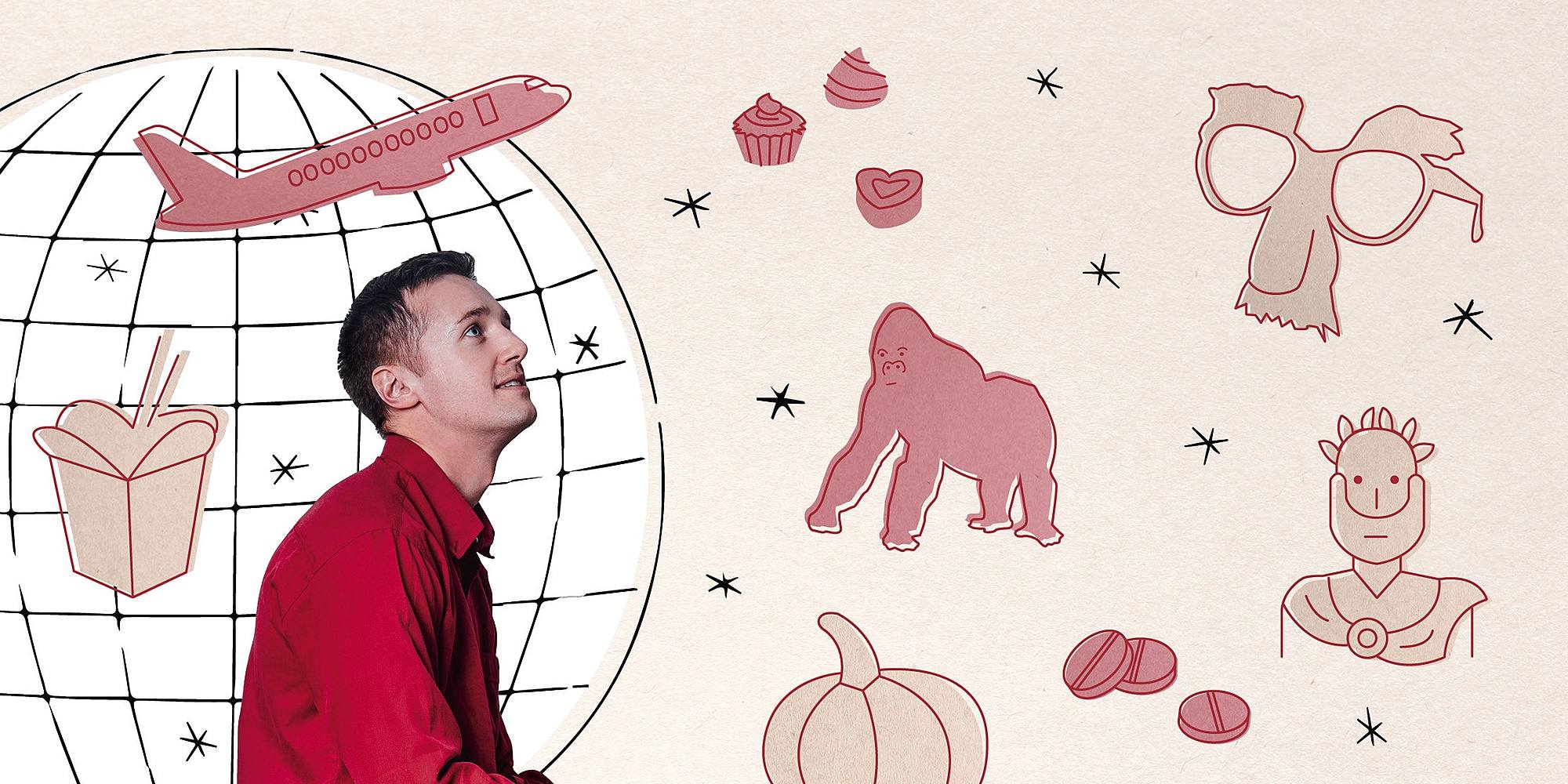Memoirs of a Participant: A Review of Essays In Love
Kate Prior was a participant in Oliver Driver and Eli Kent’s Essays In Love. Here are some essays on that experience.
Kate Prior was a participant in Oliver Driver and Eli Kent’s Essays In Love. Here are some essays – and yes, they are essays thankyou – on that experience.
I wrote this on a weekend before the reality of COVID-19 crashed down on theatre in New Zealand. Suddenly even the concept of participation – taking someone’s hot and sweaty hand and being led onto the stage – feels like it has a whole different meaning completely. This is what it used to mean. A few days ago.
1.
For some reason I’ve chosen to sit in the second row. I never sit in the second row but last week I went to a dance show and sat at the back and there was lots of floor stuff and I couldn’t see anything for a good 20 minutes, I had to just sit in the dark and listen to the music which was fine but I’d like to avoid that this time if I can. As the lights go down I remember this is a show that contains participation. As soon as I remember this is a show that contains participation I know I’ll be chosen. It’s a fate of which I feel certain.
2.
Leon Wadham, the actor in the show, has been onstage for 15 minutes. Leon is playing Otto, a philosopher who is here to give a lecture on love. He is wearing awkward clothes and speaking in an English accent. He’s giving this lecture under some clear psychological duress – he’s recently broken up with someone, which makes his material extremely hard to deliver. He’s on edge and he’s hurt.
The audience is laughing. The woman sitting next to me has been pulled onto the stage to temporarily play Chloe, Otto’s girlfriend. Otto hands her a script, they do a short scene, then Otto gets the participant to sit down on the stage – to the side, but still on the lit confines of the stage – and wait. I’m not sure what for, but most importantly, I feel safe now. The participant has been chosen. Otto continues with his lecture.
3.
It’s worth noting it’s Otto, and not Leon, choosing a participant. When he does this, the performed universe of the lecture isn’t broken; Leon doesn’t break into his New Zealand accent. I don’t know why Otto has to be English. The narrator of the book was English, and there are references to London and trips to Paris, but that doesn’t really matter, Otto could easily be a New Zealander. It’s quite jarring, and instantly creates a distance between him and us. Accents live in the imported plays of Silo Theatre or Auckland Theatre Company. There’s something weird about hearing performed accents in the Basement.
I have an actor’s Pavlovian response: the rush of making a director happy.
4.
I watch Otto’s eyes scan those in my close vicinity then easefully land on me. I’m holding my breath. I’m smiling inanely. He’s handing me a script to read. I’m Chloe Number 2. Thankfully I’m told I can stay in my seat. I read the lines, trying not to sound like an actor. I wince when actors are the ones picked out for participation. Actors find it hard to be normal. Normal people are more interesting. I’ve got my actor-reading voice happening. I haven’t worked as an actor for ages but I can’t help it, it’s impossible, falling into the rhythms of table reads is like a nostalgic drug. When we finish the script I feel safe. I’m back in the dark.
But two minutes later Otto’s hand reaches out from the stage, asking me to join him in the light. Now I’m onstage and I’m playing Otto’s girlfriend at an art gallery. As directed by the script, I touch Otto’s hand. The director laughs loudly in front of me. It sounds like he’s genuinely enjoying himself. I have an actor’s Pavlovian response: the rush of making a director happy. I hate myself.
5.
Look, I don’t dislike participation outright, but there’s something about shows which work only with the premise of participation that have an obscure odour of pretend-real. Like we’re pretending this is real when it’s very unreal. I’m happy with pretend-pretend. Or real-real. My dislike is not so much from the vague dread of being picked (although yes, I tense up whenever the prospect is in the room), but from the false spontaneity, the hidden terror of the performer, the soft acquiescence of the participant.
6.
Essays in Love was written in 1993. 1993 is a foreign planet. I discovered the book around 2002 and went deep with de Botton. His book The Art of Travel was some kind of bible. I got bored of him around the time of How to Think More About Sex (2012), which may have simply been because I didn’t want to think about Alain de Botton having sex. In the 2000s, his brand of popular philosophy became so … well, popular, that it quickly became a parody of itself.
It’s interesting returning to Essays in Love. When I was 20 I used to find the narrator (the play’s Otto) so hot. I now find him just a bit of a narcissist who doesn’t shut up about how clever he is. The character is part of the era of cultural thirst for bumbling, intellectual, emotionally unavailable English guys that was triggered by Hugh Grant. It’s incredible how dated that Gen X archetype feels now. A man whose biggest problem is that he can’t say ‘I love you’ feels like something of a museum piece. I think we’re in a different, abundant, era of love. Millennials and Gen Z are very comfortable with love and giving love and showing love. I can speak on these things: I'm a Gen X/Millennial cusp.
I move and my pants are stuck to the chair.
7.
After our scene, Otto directs me to take a seat at the side of the stage with Chloe Number 1. It’s strange, I don’t know what I’m waiting for, but I guess that’s where I’m watching the rest of the show from. Once I’m sitting, still in the light, I’m painfully aware of my theatre-watching face. Once, when I was watching a show staged in traverse, someone from the other side of the audience came up to me afterwards and said, “Well you didn’t enjoy it” when I’d actually had quite a nice time. So I’m aware I have to monitor my expression. I’m not in the audience now, I’m in the show. It’s a show I have some ideas about, but I can’t think. The movement of my thoughts is crushed under the weight of my own painful self-awareness.
I catch a strong smell of fresh spray paint. After a while I realise it’s coming from the chair I’m sitting on. I move and my pants are stuck to the chair. The chair has only been spray painted a few hours beforehand. I slowly, hopefully inconspicuously, lift one thigh off, and then another, terrified I’m going to stand up and the chair will come with me. I look at the audience. It’s fine, they don’t care about me. For the rest of this section of the show my main concerns are my face, my pants, and giving Leon as much positive energy as possible. He’s really working with great care and thoughtfulness up there, and it’s a really hard role.
8.
Amongst the philosophical meanderings of the book Essays in Love, there is a deep self-absorption. The dramaturgy of this stage adaptation has retained that same egoism. At the centre is a performer who holds control. Four women participants are brought onstage who read from scripts, and are discarded to the side when they’re not required. It feels like the dramaturgical intention here is to suggest that the name ‘Chloe’ is simply a cipher for every girlfriend Otto has ever had.
Yet the much louder and much more awkward effect of the dramaturgy – gained from not only being a viewer but a participant – is the feeling that we’re all dispensable. Four girlfriends, chosen by Otto, just waiting at the sidelines of Otto’s life, ready when he needs us, reading from scripts that are fragments of his memories, not ours. On my sticky pink spray-painted chair, I feel trapped in an extremely passive role. It feels uncomfortable.
She smiles and half-laughs. We all smile awkwardly. She finally wrests herself out of the chair that’s trapped her.
9.
On the night I was there, the four Chloes who were chosen were all Pākehā women of a certain age. Yet if ‘Chloe’ is simply code, there’s no reason for ‘Chloe’ to bear any verisimilitude to life outside the doors of the theatre. Why couldn’t Chloe be a 60-year-old Pākehā man? Why couldn’t Chloe be a 40-year-old Sri Lankan woman? Why the simulacrum? It’s theatre, not film, we can do whatever we want.
10.
In the final scene of the play, we four Chloes are directed to sit with our back to the audience as Otto speaks his final speech. We’re silhouettes against the projector screen. At the curtain call we stand up to take an awkward bow. The black dress of one of my fellow Chloes is completely stuck to the pink paint on the seat. She smiles and half-laughs. We all smile awkwardly. She finally wrests herself out of the chair that’s trapped her.
Essays In Love runs from 10 – 21 March at Basement Theatre. Tickets available here.

